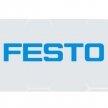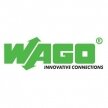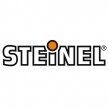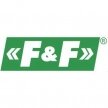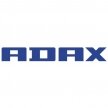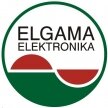-
Product Catalog
- Security and Surveillance Systems
- Automatic Circuit Breakers for Direct Current (DC) Circuits with Integrated Overload, Short-Circuit, and Voltage Stabilization Protection Functions
- Lighting with the help of electrical energy
-
Automation and Control Systems
- Automation control accessories
- Control components for automation and control systems
- Passive lifting | unloading | transporting magnets
- Signal converters | controllers for automation control | for control systems
- Touchscreens | panels for automation control | control systems
-
Power Contactors | Control Circuit Intermediate Relays
- Mini contactors for electric motor control
- Contactors | Electrical starters | For equipment control
- Electromechanical thermal relays | electrical equipment protection
- Contactors with enclosure and control buttons | for electrical equipment control
- Control coils for contactors | starters | electrical equipment control
- Adapters-converters for relays and contactors
- Additional contacts | Accessories for contactors
- Relays for electrical equipment automation control | monitoring
- Relay sockets | for connecting relays to the control system
- Relay modules | for the safe operation of electrical equipment
- Optical sensors | detectors for automation devices
- Automation control | Data transmission | Low current
- Sealing profiles | rubber | gaskets | strips
- Inflatable Liquid Storage Tanks | Reservoirs | Bladders
- Inflatable rubber plugs for sealing high-pressure plumbing pipes
- Electrical distribution and installation
- Solar Energy Generation and Management Equipment
- HVAC control solutions for heating and ventilation.
- Special products and accessories
- Other products
- Safety tools
- Quality used products
Relay sockets | for connecting relays to the control system
- Read more
Relay sockets are essential electrical components used to connect a relay to the control system. They ensure reliable and safe installation of the relay and its connection to the electrical circuit. Relay sockets allow for quick and easy relay replacement or repair, ensuring fast and simple maintenance. They are essential in many industrial, commercial, and residential systems where precise and reliable control is required.
Relay sockets are used with various relays, such as contact relays, time relays, thermal relays, protective relays, and electromagnetic relays. They come in various sizes and shapes depending on the type of relay and provide secure, safe, and easy installation and replacement of the device.
-
Read more
Technical Data
Material: Relay sockets are typically made of plastic, ceramic, or metal, depending on their purpose and the required temperature and mechanical resistance.
Operating Voltage: Relay sockets are most commonly used for AC (alternating current) and DC (direct current) relays. They can withstand voltages ranging from 12V to 400V and beyond, depending on the model and application conditions.
Rated Current: Sockets are often classified according to their rated current, which depends on the size of the relay used. Typical rated currents can be 10A, 16A, and 25A, but higher current sockets are also available.
Protection Rating: The protection rating often depends on the design of the socket and its mounting conditions. The most common are IP20 (for indoor conditions), but there are also higher IP67-rated sockets designed for outdoor or damp environments.
Mounting: Relay sockets can be mounted on a DIN rail, a panel, or with wires to ensure a reliable and safe mounting and connection for the relay. Some sockets are vibration-resistant, making them suitable for industrial and transportation systems.
Cross and Straight Sockets: Cross sockets are used when multiple relay circuits need to be connected to a single socket, while straight sockets are used for simple relays with a single circuit.
Connection Type: Depending on the type, sockets may have screw or snap connections, allowing for quick and secure wire attachment.Usage
Automation Systems: Relay sockets are commonly used in automation systems where relays control various devices such as motors, heating, ventilation, and air conditioning (HVAC) systems, lighting, and other industrial equipment.
Industrial Control Panels: They are used in industrial control panel components, where a reliable and secure connection of relays to the control system is essential to ensure smooth and efficient system operation.
Automobiles and Transportation Systems: Relay sockets are used in automobiles and other vehicles where relays control various functions, such as electrical power distribution, lighting, and engine management.
Safety and Alarm Systems: In industrial safety and alarm systems, where it is necessary to control various devices such as fire alarms, security equipment, or danger signals.
Power Distribution Systems: Relay sockets are also used in power distribution and voltage control devices, where they help ensure a stable and reliable power supply to various devices.Pros
Reliability and Safety: Relay sockets ensure reliable and safe electrical power transmission, reduce the likelihood of faults and failures, and allow for quick and easy replacement or repair of the relay when necessary.
Flexibility and Versatility: Depending on the type of socket, they can be used for various relays and systems, making them a versatile tool in different industrial sectors.
Additional Protection: Relay sockets provide extra protection to relays against mechanical damage, corrosion, and other external factors, ensuring long-lasting and efficient operation.
Easy Installation and Maintenance: Sockets mounted on a DIN rail or with screw connections ensure quick and convenient installation and maintenance, reducing equipment downtime.Cons
Physical Limitations: Relay sockets may have size limitations and may only be suitable for specific types of relays, so additional accessories or adapters may be required if connecting different types of relays.
Price Differences: Some high-quality relay sockets, especially for industrial conditions, can be more expensive than simple sockets, but their durability and reliability pay off over the long term.
Limited Resistance to Extreme Conditions: While many relay sockets have protection ratings, some models are not suitable for use in very damp, contaminated, or extreme temperature conditions unless specifically designed for these purposes.Relay sockets are essential components that ensure reliable and safe connections between control systems and electrical devices. They are widely used in industries, automation systems, energy sectors, and other fields where fast and efficient relay connection and replacement are important. Due to their simple installation, durability, and safety, they are indispensable in industrial and commercial systems, but attention must be paid to specific usage restrictions and conditions.
No items found.
US IN SOCIAL NETWORKS



